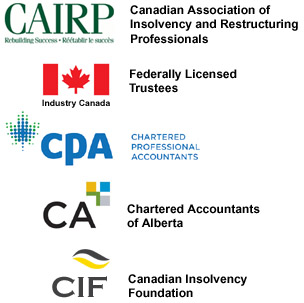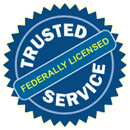Tax Debts come in many forms, ranging from personal income taxes to directors’ liabilities for unpaid corporate obligations. Tax Debts and unpaid tax obligations are frequently referenced as a major cause of one’s bankruptcy or financial difficulty.
With the daily compounding of interest and penalties, tax debts grow exponentially and can be insurmountable. People who are considering bankruptcy or who are reviewing alternatives to bankruptcy, often arrive at a Trustee in Bankruptcy’s office believing that Revenue Canada debts will survive their bankruptcy and must be paid even if they go bankrupt. The most frequent phrase we hear is, “I know I can’t go bankrupt on Revenue Canada, but I want to deal with my other debts.”
TAX DEBTS IN CANADA AND THE U.S ARE TREATED DIFFERENTLY
In the U.S. debts owed to the Internal Revenue Service survive bankruptcy and must be paid. This is very different from the usual situation in Canada. The truth is that you can go bankrupt on most tax debts, and have these debts written off. In a bankruptcy, Revenue Canada enjoys no higher status than the claim of any other creditor, and for the most part, these debts are likely to be forgiven once you are discharged from bankruptcy.
There are exceptions or situations, however, where they may not, i.e. where tax returns have been filled out falsely, or where a person has been in bankruptcy two or more times, and their bankruptcies have been tax driven.
We address the varying tax debts as follows:
1. Personal Income Taxes
If you have not filed tax returns or owe taxes on self employment or other earnings, a discharge from bankruptcy usually absolves you of these obligation. The filing of false tax returns is fraud, however, and debts incurred as a consequence of a fraud perpetrated by an individual usually survive a bankruptcy, and must be paid. In essence, you are better off having not filed your returns or short paying accurate returns than fully paying the sum on a falsified return or on returns which purposely understate the true obligation.
2. Goods and Services Tax (GST)
A personal GST obligation usually arises from three sources:
- i. GST collected by you and not remitted to the government on proprietorship earnings or GST on earnings that you failed to collect;
- ii. GST collected by a corporation where you are the Director, and the corporation fails to remit the GSTthey collected from customers;
- iii. GST credits paid to you based on last year’s personal tax returns, where your income has gone up and you no longer qualify for these credits.
GST debt incurred in connection with all three of the above situations are usually forgiven when someone files bankruptcy or goes bankrupt.
3. Unpaid EMPLOYER Remittances or Source Deductions
These types of debts usually arise where you are self-employed and fail to make remittances on your income or where you employ others, take deductions off their paycheques, and fail to remit them to the government, or where you are a Director of a corporation where deductions have been taken off employees’ cheques, and the company has not remitted those deductions to the government.
Provided that no returns have been falsified, these types of debts are usually written off when someone goes bankrupt or files an assignment into bankruptcy.
4. Unpaid Corporate Income Taxes
If you are a Director of a Corporation, and the corporation fails to file corporate returns or pay their corporate income taxes, these debts are not usually assessed against the Director, because unlike GST or source deductions, they do not represent funds collected from others which have not been remitted.
YOUR SITUATION MAY REQUIRE FURTHER REVIEW
Readers of this website are cautioned that while the above information will apply to most circumstances, our clients face, they do not incorporate every scenario or circumstance. There may be factors particular to your situation that vary from the general or norm. For a full and complete assessment of your tax situation and which debts survive a bankruptcy, we encourage you to contact an Alberta Bankruptcy Trustee.



